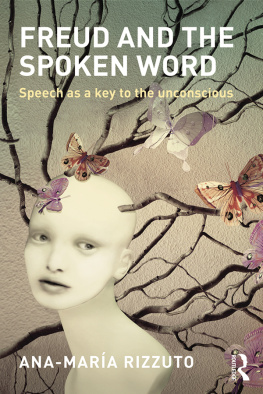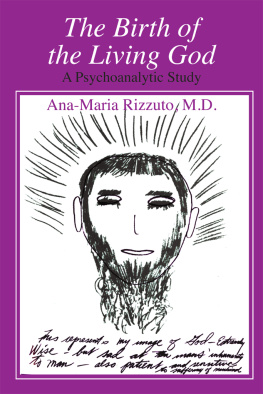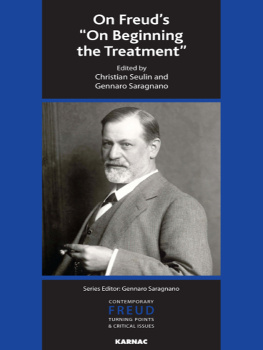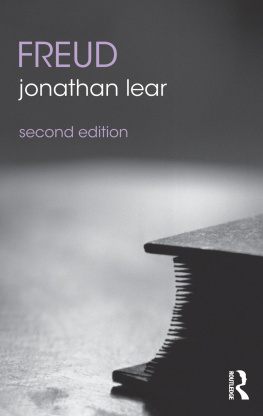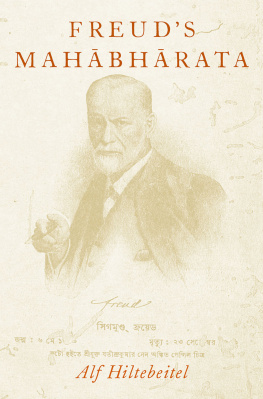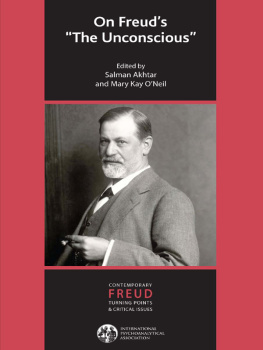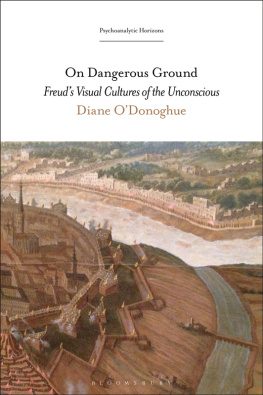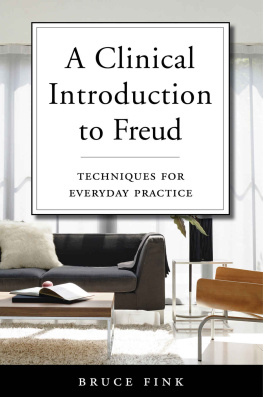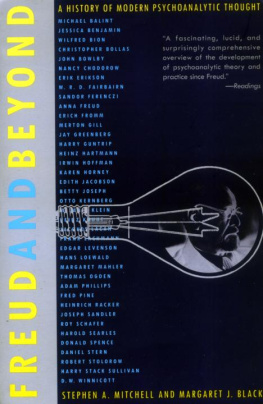Ana-Maria Rizzuto - Freud and the Spoken Word: Speech as a key to the unconscious
Here you can read online Ana-Maria Rizzuto - Freud and the Spoken Word: Speech as a key to the unconscious full text of the book (entire story) in english for free. Download pdf and epub, get meaning, cover and reviews about this ebook. year: 2015, publisher: Routledge, genre: Detective and thriller. Description of the work, (preface) as well as reviews are available. Best literature library LitArk.com created for fans of good reading and offers a wide selection of genres:
Romance novel
Science fiction
Adventure
Detective
Science
History
Home and family
Prose
Art
Politics
Computer
Non-fiction
Religion
Business
Children
Humor
Choose a favorite category and find really read worthwhile books. Enjoy immersion in the world of imagination, feel the emotions of the characters or learn something new for yourself, make an fascinating discovery.
- Book:Freud and the Spoken Word: Speech as a key to the unconscious
- Author:
- Publisher:Routledge
- Genre:
- Year:2015
- Rating:5 / 5
- Favourites:Add to favourites
- Your mark:
Freud and the Spoken Word: Speech as a key to the unconscious: summary, description and annotation
We offer to read an annotation, description, summary or preface (depends on what the author of the book "Freud and the Spoken Word: Speech as a key to the unconscious" wrote himself). If you haven't found the necessary information about the book — write in the comments, we will try to find it.
There is extensive literature on Freud and language; however, there is very little that looks at Freuds use of the spoken word. In Freud and the Spoken Word: Speech as a key to the unconscious, Ana-Mara Rizzuto contends that Freuds focus on the intrapsychic function and meaning of patients words allowed him to use the new psychoanalytic method of talking to gain access to unconscious psychic life. In creating the first talking therapy, Freud began a movement that still underpins how psychoanalysts understand and use the spoken word in clinical treatment and advance psychoanalytic theory. With careful and critical reference to Freuds own work, this book draws out conclusions on the nature of verbal exchanges between analyst and patient.
Ana- Mara Rizzuto begins with a close look at Freuds early monograph On Aphasia, suggesting that Freud was motivated by his need to understand the disturbed speech phenomena observed in three of the patients described in Studies on Hysteria. She then turns to an examination of how Freud integrated the spoken word into his theories as well as how he actually talked with his patients, looking again at the Studies in Hysteria and continuing with the Dora case, the Rat Man and the Wolf Man. In these chapters, the author interprets how Freuds report of his own words shed light on the varying relationships he had with his patients, when and how he was able to follow his own recommendations for treatment and when another factor (therapeutic zeal, or the wish to prove a theory) appeared to interfere in communication between the two parties in the analysis.
Freud and the Spoken Word examines Freuds work with a critical eye. The book explores his contribution in relation to the spoken word, enhances its significance, and challenges its shortcomings. It is written for psychoanalysts, psychotherapists, Freuds scholars and academics interested in his views on the words spoken in life and in psychoanalysis.
Argentine born Ana-Mara Rizzuto trained in psychoanalysis in Boston and was for forty years in the PINE Psychoanalytic Center Faculty and is Training and Supervisory Analyst Emerita. She has made significant contributions to the psychoanalysis of religious experience and has written in national and international journals about the significance of words in the clinical situation. She has written three books and lectured about her work in North America, Latin America, Europe, and Japan.
Ana-Maria Rizzuto: author's other books
Who wrote Freud and the Spoken Word: Speech as a key to the unconscious? Find out the surname, the name of the author of the book and a list of all author's works by series.

